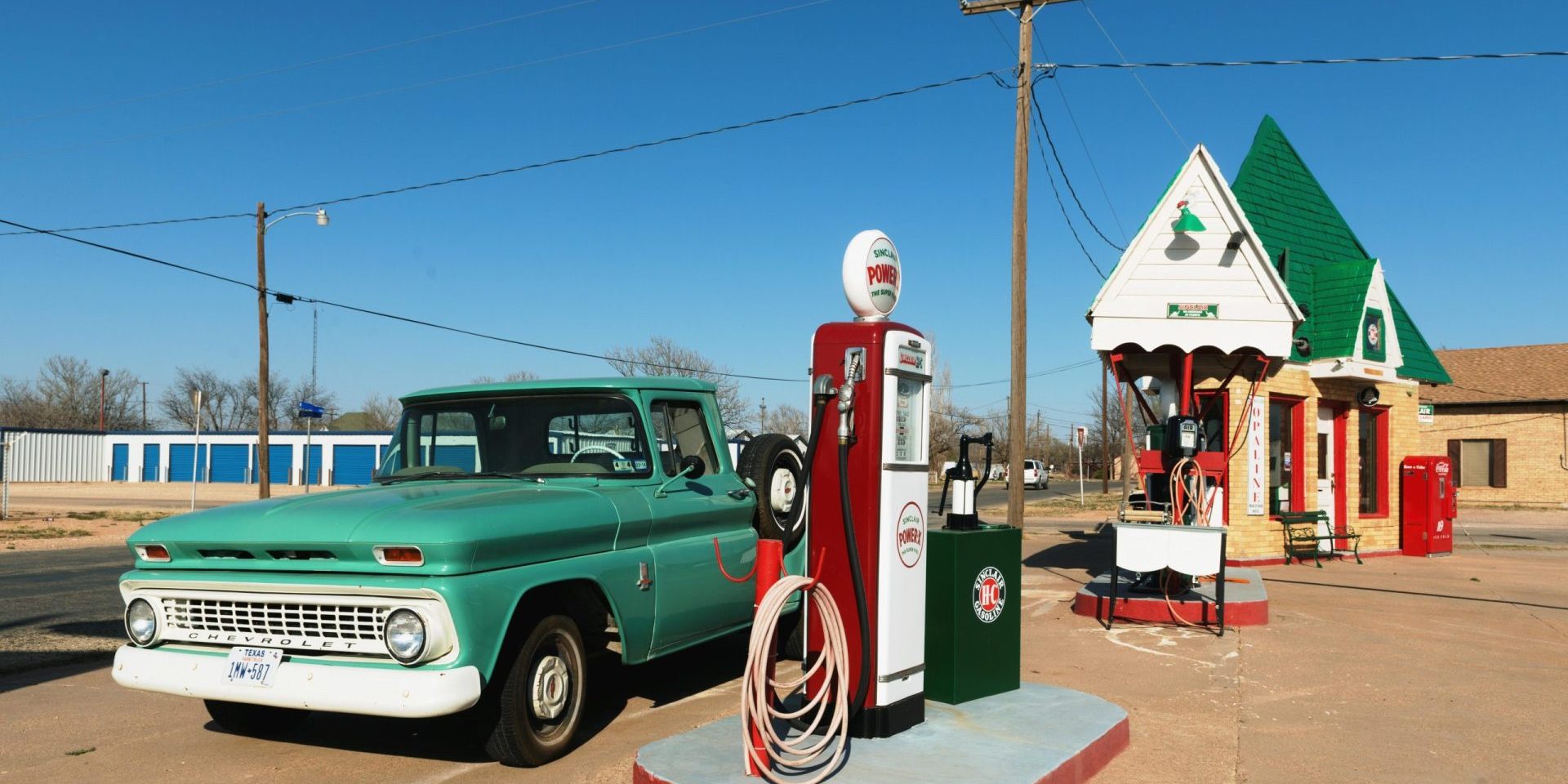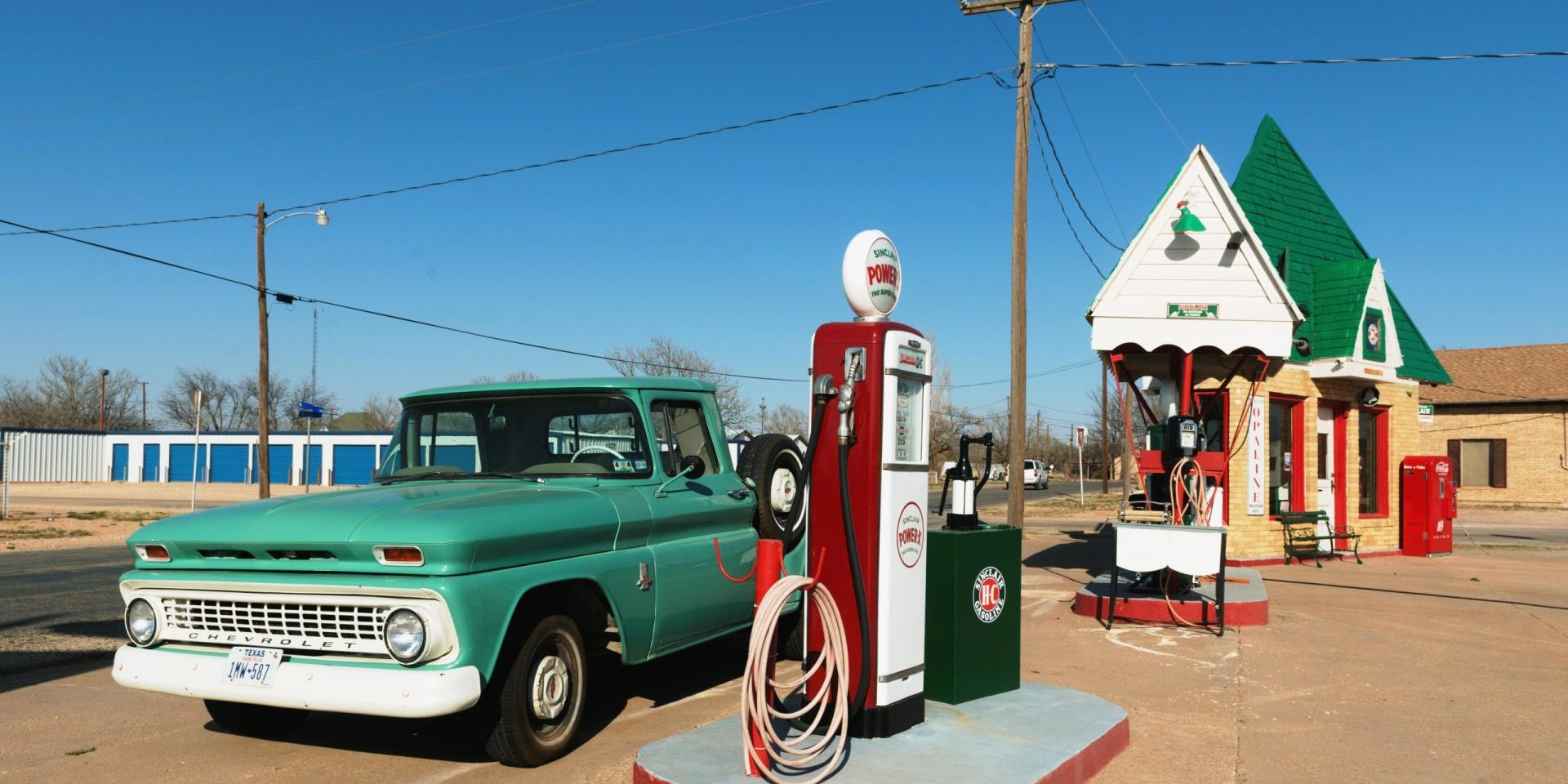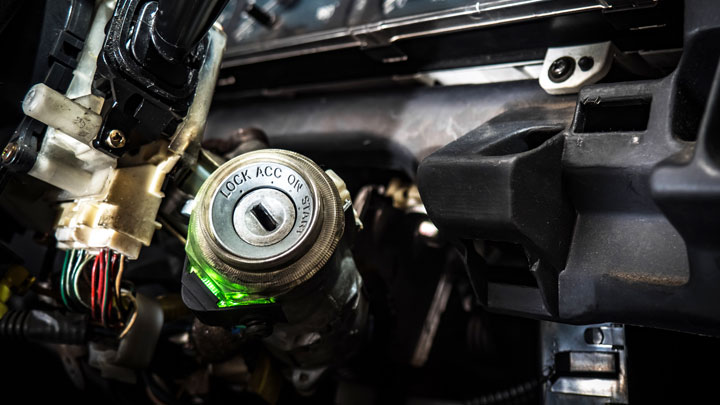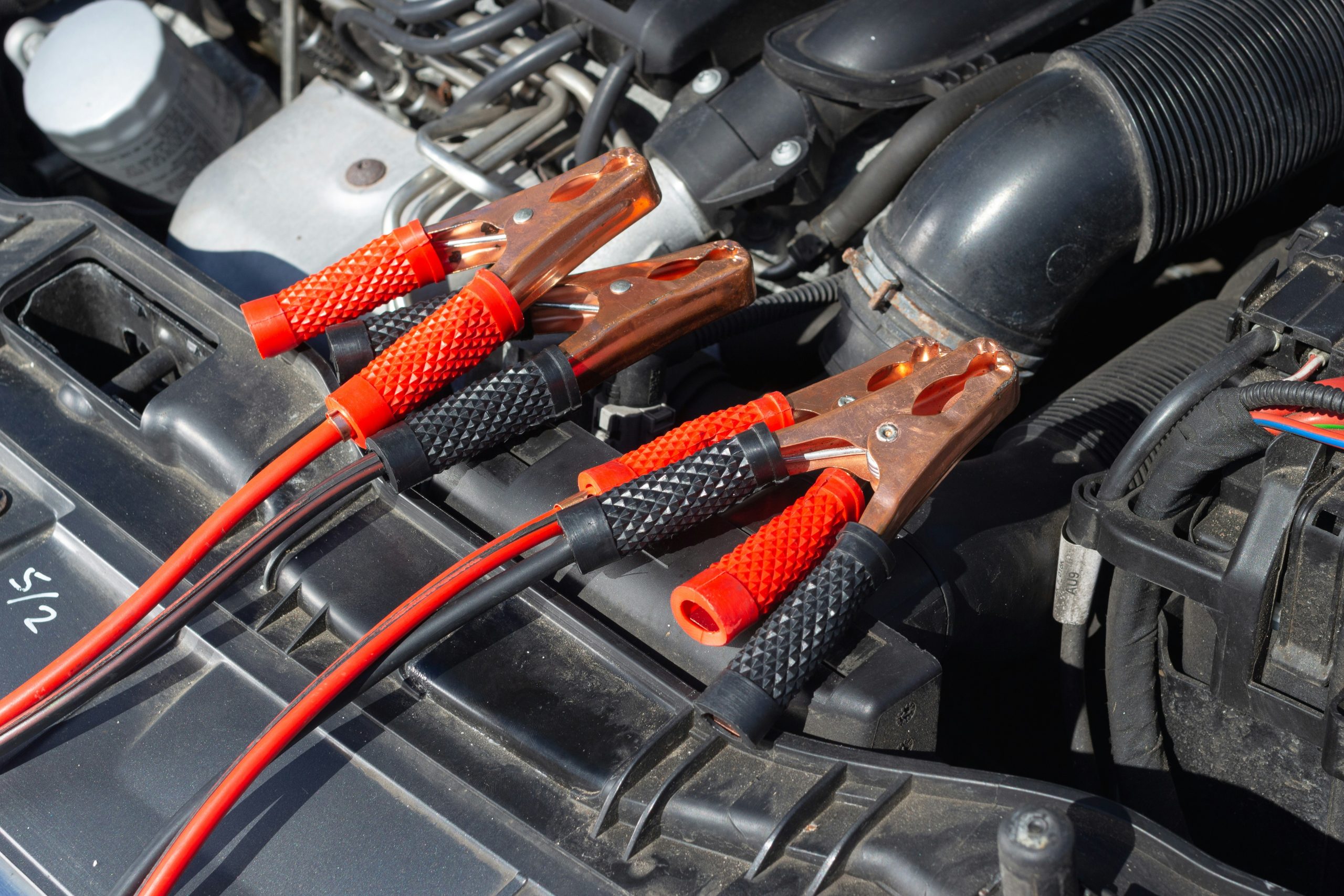Why does my car smell like gas inside?


Gasoline odor inside a car can be due to various reasons. Several factors can contribute to this occurrence, such as fuel line leaks, damaged or loose carburetor or fuel tank, or worn-out gaskets. A common reason is gas evaporation from the fuel system or fuel tank, which can lead to the smell. These issues require prompt inspections and repair from a professional mechanic. Avoid prolonged exposure to fumes as they can be hazardous to health. Adequate ventilation can prevent gas odors from building up inside the car.
Check for leaks or cracks in the fuel system and the fuel tank regularly. Keep the gas tank cap tightly secured to prevent gas evaporation.
Fuel Leak
When gasoline or diesel fuel starts leaking from a vehicle’s fuel system, it may create an unpleasant gas smell inside the car. This leakage can occur from various points, such as cracked lines, loose fittings, or damaged tanks. Fuel leaks are dangerous because they increase the risk of fire and explosion, so it’s essential to diagnose and fix them as soon as possible.
To determine if a fuel leak is present, one needs to inspect the fuel system thoroughly. This procedure involves checking for visible stains or wet areas under the car or near the tank, as well as listening for hissing sounds or feeling for vibrations while running the engine with the hood open. If a fuel leak is confirmed, it’s recommended to stop driving the car immediately and call a professional mechanic or towing service.
One lesser-known cause of gas smell in a car is an issue with its charcoal canister. The charcoal canister is part of the evaporative emission control system that captures and stores gasoline vapors for later combustion in the engine. However, if this component fails due to clogging, cracks, or valve malfunctions, it may not absorb fumes correctly and release them into the cabin through either purge lines or vent valves. Therefore, replacing or repairing a faulty charcoal canister could eliminate gas odor issues in some cases.
To prevent gas smells in cars caused by leaks or charcoal canisters breakdowns, drivers should observe regular maintenance schedules recommended by their automakers and avoid overfilling fuel tanks beyond their maximum capacity. Additionally, it helps to park vehicles away from direct sunlight to reduce vapor pressure buildup and install carbon monoxide detectors inside garages where they are stored overnight.
Faulty Evaporative Emission Control System
Gas smell in cars can be caused by a malfunctioning system responsible for controlling evaporative emissions. This system, which includes the fuel tank, purge valve, and vent, ensures that fumes generated within the tank are not released into the air. When the system is faulty, gas smell in cars may become very strong and pose health risks to passengers.
A malfunctioning evaporative emission control system could be caused by a loose gas cap, ruptured fuel line, or broken charcoal canister. The gas cap maintains pressure inside the tank while preventing outside air from entering it. A damaged fuel line allows gasoline to leak out of the car and onto surrounding surfaces, while a faulty charcoal canister cannot absorb and store hydrocarbons as expected. It is important to have these components inspected by a qualified technician when experiencing gas smell in cars.
Other potential causes of gas smell in cars include leaking fuel injectors or carburetor float bowls and damaged exhaust systems. Leaking injectors release excess gasoline into the engine compartment rather than through the fuel line– this creates an odor that builds up over time. Damaged exhaust systems, on the other hand, cause fumes to escape before they’re filtered properly which results in a strong odor.
Pro Tip: Regular inspections of various car components are recommended to detect issues early before they escalate into bigger problems like toxic fumes buildup or expensive repair costs for drivers.
Damaged Fuel Tank
Fuel tanks are a crucial part of a car’s fuel system. Any damage to the tank can lead to gas leaks, which not only cause unpleasant smells but also pose safety hazards. Damage may occur due to corrosion, punctures, or cracks caused by accidents or improper installation. If you suspect your fuel tank is damaged, it’s important to get it checked by a professional immediately.
If left unchecked, gas leaks from a damaged fuel tank can contaminate the environment and harm your health. The smell of gas can also indicate other issues with the fuel system, such as clogged filters or faulty lines. A common sign of a damaged fuel tank is reduced fuel efficiency and frequent refueling. It’s important to address any issues promptly and avoid driving with low fuel levels.
When dealing with a damaged fuel tank, there are several options depending on the severity of the damage and your budget. Professional repair or replacement of the entire tank may be necessary in some cases. In less severe cases, temporary fixes such as patching or sealing may be possible until you can get it fully repaired. Regular maintenance of your car’s fuel system can also prevent damage to the tank in the first place.
In summary, a damaged fuel tank is a serious issue that requires prompt attention for both safety and environmental reasons. By being aware of potential signs and taking preventive measures such as regular maintenance, you can minimize the risks associated with gas leaks and avoid costly repairs down the line.
Damaged Fuel Injector
When the fuel injector is damaged, it can cause a strong gas smell in the car. This happens when the injector fails to deliver the correct amount of fuel to the engine. As a result, unburnt fuel remains in the combustion chamber and mixes with oil before entering the exhaust system. This mixture produces a gas odor that can be harmful to passengers’ health if left unaddressed.
Replacing or repairing a damaged fuel injector should be done by an experienced technician. Checking for leaks or clogs in the fuel lines may help pinpoint the problem. Additionally, regular maintenance such as cleaning and replacing air filters, spark plugs, and mass airflow sensors can prevent future injector issues.
It’s worth noting that other factors, such as a failed catalytic converter or leaking exhaust pipes, can also contribute to gas odors in a vehicle. These issues must be addressed promptly as they are not only smelly but potentially dangerous for occupants.
A car owner once reported smelling gasoline in their car and ignoring it for several days until experiencing headaches and nausea while driving. Upon inspection by a mechanic, it was discovered that their fuel pump had failed and caused an overflow of gasoline under the hood. The car was repaired safely, but this serves as a reminder to never ignore unfamiliar smells in your vehicle to avoid potential accidents or harm.
Poorly-Fitted Fuel Cap
A potential cause of gas odor inside a vehicle can stem from an ill-fitting fuel cap, also known as a loose gas cap. This situation will allow gasoline fumes to escape and infiltrate the cabin of the car. Additionally, not only can it cause an unpleasant smell but it may also make your car run less efficiently, affecting fuel economy. A simple remedy for this is to make sure the fuel cap is tightened correctly. In case the problem still persists, consider replacing it with a new one.
One should note that it is vital to ensure the proper installation of all components connected to fuel systems in cars such as fuel caps. They form critical parts whose breakdown could cause significant damage even fatal accidents.
Studies suggest that transporting flammable fluids is believed to be 2% more hazardous than most other good movements and accounts for 10% of all dangerous goods accidents worldwide (Source: World Bank report). Thus, by adhering strictly to manufacturer’s instructions when installing car components like fuel caps safely and following specified road safety procedures while driving vehicles carrying them will help prevent incidents related to gas smells in cars.
Symptoms of Gas Smell in a Car
Gas smell inside a car is not only unpleasant but also hazardous. It is crucial to understand the symptoms of gas smell in a car to prevent any potential danger. If you sense any of the following, it is recommended to seek professional assistance:
- Strong Gasoline Smell: If you notice a strong odor of gasoline inside the car, it is a warning sign and should not be ignored.
- Hissing or Whistling Sound: A hissing or whistling sound from the fuel tank could indicate a leak, which would cause a gas smell in the car.
- Reduced Mileage: Any reduction in the car’s mileage may suggest that the vehicle is not burning fuel efficiently, causing a gas smell inside the car.
- Check Engine Light: If the check engine light turns on, it could suggest that there is a fuel system malfunction that needs urgent attention.
Preventive measures like fixing loose or damaged fuel caps, regular car maintenance, and checking for gas leaks can prevent gas smell inside the car. It is essential to remember that gas smell inside a car is not normal and should be taken seriously.
Gas smell in a car can cause many hazardous effects, from loss of consciousness to explosions. One of the most significant car accidents in history occurred in 1978 when a gas leak caused an explosion at a gas station in Los Angeles, killing six people and injuring over 200. Therefore, it is imperative to take immediate action when encountering a gas smell in a car.
Dizziness or Headache
Exposure to gas smell in a car may cause physical discomfort, such as nausea or light-headedness. Continued exposure to gas fumes may also lead to cognitive impairment and loss of attention span. Inhaling toxic fumes can cause inflammation in the respiratory system, leading to headaches and dizziness.
Additionally, carbon monoxide poisoning from a leaking exhaust system may lead to more severe symptoms such as confusion, seizures, and loss of consciousness. Hence it is essential to identify gas odor in the car and taking immediate action by pulling over and allowing fresh air inside the vehicle.
Pro Tip: Regularly check exhaust systems for leaks or other faults that can result in gas leaks. It’s always advisable to seek professional help when dealing with such issues rather than trying a DIY approach.
Eye, Nose, and Throat Irritation
The foul odor emanating from gas in your vehicle can cause irritation to the eyes, nose, and throat. This condition can make it difficult to drive or ride comfortably. The presence of gas can result in an acrid smell that causes pain around the eyes, burning sensations within the nasal cavity, and scratchy throat sensations. Such symptoms could be an indication of a leak in the exhaust system or fuel lines.
To ascertain if gas is leaking, one may also notice other symptoms such as decreased fuel efficiency or engine power, puddles underneath the vehicle, or SES (Service Engine Soon) light popping up on your dashboard. It’s important to attend to these issues right away because inhaling large amounts of gasoline vapor, even for a short time, can lead to headache, nausea, and dizziness.
If you notice any of these symptoms while driving or riding a car, it is recommended to seek professional help immediately. Avoid sitting in the car until the issue is resolved. Open all windows and doors so that a cross-ventilation effect gets created which will make sure that fresh air flushes out any volatile organic compounds present inside.
Pro Tip: Regular maintenance checks and proper inspection of your car can help identify potential problems early. It’s essential to pay attention to peculiar smells emanating from your vehicle as they could be warning signs indicating a much larger issue at hand.
Nausea or Vomiting
The sensation of feeling vomitous or experiencing nausea can indicate exposure to gas in a vehicle. It is crucial to identify and address the smell as soon as possible to avoid harmful health consequences.
Gas leaks can cause feelings of lightheadedness, dizziness, and headaches that may result in nausea and vomiting. Sustained inhalation of gas fumes can also lead to respiratory issues, nervous system damage, or death. Symptoms can vary from person to person depending on the amount of time they are exposed to the gas and their sensitivity levels.
If you experience these symptoms while in your car, it is necessary to seek immediate medical attention. Avoid exposing yourself or others from the dangerous fumes by rolling down the window for ventilation before seeking medical attention.
It is essential not to ignore any smells that resemble gas, even if no symptoms appear immediately. Proper maintenance and inspection prevent issues before they worsen. Thus it is ideal for getting your car inspected regularly by a professional mechanic.
Unpleasant Odor
The pungent and unpleasant odor in a vehicle can be a troubling sign of several issues. It could indicate gas leaks, damaged engine components or faulty exhaust pipes. Immediate attention is necessary to prevent any potentially dangerous consequences. An experienced mechanic must diagnose the root cause of the smell to ensure safe and trouble-free driving.
In addition to being an unfortunate experience for drivers and passengers, certain toxic gases such as Carbon Monoxide can induce sickness within minutes. This makes it critical for drivers to react quickly and investigate unexplained smells immediately. Pulling over safely at the first sign of smelling gas or exhaust fumes is compulsory in terms of ensuring personal safety.
If ignored, these persistent odors can lead to costly damages such as corrosion while also amplifying the risk of fire hazards within the car’s engine bay. Regular check-ups at dealerships or experienced repair shops must not be missed by drivers.
A recent news article on Sky News stated that firefighters rescued six people on holiday after they fell ill from carbon monoxide poisoning caused by a generator left running inside their holiday accommodation. This highlights how ignoring and failing to respond promptly to smells – even outside vehicles – that are not familiar or normal can have serious health-related effects that need immediate attention & support from experts in relevant situations like this one mentioned above.
Difficulty Breathing
Breathing Difficulty can be a concern if you smell gas in your car. Gasoline fumes can cause irritation to the nose, throat, and lungs, leading to breathing difficulties. This can escalate if the concentration of gas is high or if exposure is prolonged.
If you experience symptoms like coughing, shortness of breath, wheezing, or tightness in the chest after smelling gas in your car, go outside immediately and get some fresh air. Turn off the engine and avoid smoking or using other sources of ignition near your car. It’s also essential to take prompt action by having your car inspected by a professional mechanic.
Apart from immediate medical attention and inspection, it’s advisable to prevent further exposure from occurring by fueling outdoors always and not leaving gasoline cans stored in an enclosed space such as a garage.
Take care of yourself and those around you by following these simple steps when dealing with gas smell or Breathing Difficulty in cars. Don’t put yourself at risk or delay getting help when needed.
Get ready to put your handyman skills to the test, because fixing the gas smell in your car is going to be a real gas!
How to Fix Gas Smell in a Car
Gasoline smell inside a car can be a sign of a potential threat. To ensure safety, it is crucial to understand how to address this issue. Follow these six steps to eliminate gas odor in your car:
- Check the fuel system for any leaks or damages
- Replace damaged components in the fuel system
- Clean and replace fuel filters
- Inspect and replace the gas tank cap if necessary
- Clean up any spills or residue on the fuel injection and carburetor systems
- Visit a mechanic for professional checkup
Also, note that the gas smell inside a car can cause dizziness, nausea, and headache. It is advisable to keep the windows open while driving until the issue is resolved.
A unique detail to consider is that the smell could also be attributed to the evaporation of gas in the tank due to prolonged parking in hot conditions. In such cases, simply driving and running the AC could help alleviate the smell.
Once, a friend of mine had a gas smell in his car and ignored it until it became unbearable. Eventually, the vehicle caught fire while parked in his driveway. Luckily, no one was injured, but the damage to his car was extensive. This incident shows the importance of fixing gas odor issues in a timely and professional manner.
Get Your Car Inspected by a Professional Mechanic
A prudent approach to addressing gas smell in your car would be to engage a seasoned automotive technician. Getting the services of a qualified mechanic is critical since they possess technical proficiency and are well-versed in automobile diagnostics. They have the required toolset and diagnostic apparatus, ensuring comprehensive assessments are undertaken. Not only would they diagnose the gas smell problem, but proficient mechanics can also check for other potential issues that may cause the same symptomatic odor emission.
Once you have taken your vehicle to the mechanic, they will undertake a thorough inspection of the engine compartment, fuel system, exhaust system, and venting mechanism. Through experience and diligence, experienced professionals could uncover problems that even an untrained eye might overlook. Their assessment includes manual inspections both off and at idle positions. Thorough functional tests complement direct observations provoking latent problems with fuel injectors, fuel pumps or HVAC (Heating Ventilation Air Conditioning) systems.
It is worth noting that you ought to seek prompt assistance from professional assistance when encountering gas smells emanating from your car. A lingering exposure to it poses health risks such as dizziness or headaches – highlighting the importance of seeking professional help.
My good friend once encountered a significant engine malfunction on her drive home; she reported experiencing an uncommon odor coupled with an engine warning light illuminating promptly after commencing her journey in low-temperature conditions. After visiting an automotive technician recently trained, her vehicle underwent extensive diagnosis culminating in discovering gasoline-like odor emissions due unfixed leaks in her fuel line resulting from frigid weather conditions contacting worn hoses over time themselves became brittle resulting in sporadic failures ultimately endangering commuters’ safety if unchecked suddenly.
Replace the Faulty Component
If you’re experiencing a gas smell in your car, replacing the problematic part might be necessary. Here’s how:
- Identify the faulty component by following your nose and checking for leaks or cracks.
- Unplug any electrical connectors or wires from the component to ensure safety.
- Use the appropriate tools to remove the old component carefully.
- Clean the area and inspect neighbouring parts for any damage.
- Install the new component with care and reattach any electrical connectors or wires.
- Test the vehicle to verify if there are any remaining gas smells.
Remember that even though this procedure might seem simple, handling fuel components can be dangerous. Always ensure that you follow safety protocols when taking on such a task.
When replacing a component, make sure that you use original equipment manufacturer (OEM) parts whenever possible. Using genuine parts guarantees that you will get optimal performance and prevents other issues from arising.
Pro Tip: It’s best to take your vehicle to a mechanic or professional technician if you’re not confident about handling gas components yourself. They have specialised knowledge and experience, ensuring safe replacements are made so that it works optimally.
Tighten the Fuel Cap
Ensure that the fuel cap is tightly secured to eliminate gas smell. A loose fuel cap can cause vapor leakage, leading to unpleasant odor and loss of fuel due to evaporation. Tighten the fuel cap by turning it clockwise until a clicking sound is heard.
Periodically check your fuel cap for signs of wear and tear, such as cracks or distorted threads, which may prevent proper sealing. Replace it with an appropriate substitute from a reputable dealership or auto parts store if necessary.
In addition, avoid overfilling your vehicle’s gas tank as this can lead to spillage and residual gas odor. Always maintain your car’s fuel system and promptly address any problems that may arise.
According to experts at the US Department of Energy, replacing an outdated fuel cap with a new one can save up to 33 gallons of gasoline per year for vehicles manufactured after 1980.
Use Fuel Additives
Fuel additives aid in enhancing fuel performance while reducing gas smell. By providing lubrication to injectors and cylinders, they improve fuel economy and reduce emissions. Here’s what you need to know about using fuel additives:
- Use a high-quality fuel additive with detergents that clean the injectors and combustion chamber, reducing carbon deposits and improving engine efficiency.
- Synthetic-based fuel additives help protect the engine from wear by forming a protective coating on critical engine parts.
- Alcohol-based fuel additives can cause harm to some engines; ensure that it is compatible with your car’s engine before use.
- Buy fuel additives from reputable brands that meet regulatory standards for safety, environmental impact, and performance claims.
- Be cautious: never exceed the manufacturer’s recommended dosages as this can lead to unintended consequences like an oxidized catalytic converter or fouled spark plugs.
- Follow instructions: add the recommended dosage directly into your vehicle’s petrol tank through its filler pipe during refueling or as advised by your mechanic.
Additionally, make sure to use fresh synthetic oil at regular intervals as recommended by your vehicle manufacturer. Consider replacing clogged air filters regularly since this ensures proper airflow into your car’s engine. Failure to do so results in reduced engine output.
To prevent gas smell in a car’s interior, avoid leaving windows open when parked near a petrol station or an area where gasoline is stored. Do not smoke inside of your car either. If you suspect there is a leak in one of the fuel system components like hoses or fittings, have it inspected immediately at a certified automotive repair shop.
By following these suggestions on adding fuel additives and maintaining other components of your car, you can enhance its performance and reduce unwanted odors without compromising safety.
Check and Replace Cabin Air Filter
Cleaning and Replacing the Cabin Air Filter is a crucial step in eliminating gas smell in your car. Follow these simple steps for an odor-free vehicle.
- Know the Location: Identify the air filter location.
- Remove Obstructions: Clear away any obstacles blocking access to the filter.
- Remove Filter Cover: Unclip or unscrew the filter cover.
- Replace Filter: Take out the old filter and replace with a new one.
- Reassemble: Get everything back into place.
- Test It Out: Turn on your car’s AC and see if there’s any improvement.
It’s essential to make sure you’re using the correct size and type of cabin air filter, as specified by your manufacturer, for effective cleaning.
Replacing your car’s cabin air filter can ultimately save you from pricey repair bills caused by damage to other components, such as the air conditioning system.
Preventing Gas Smell in a Car
Have you ever wondered why your car smells like gasoline? A fuel odor in your vehicle can be dangerous and uncomfortable. Here are some tips to help prevent fuel odor in your car:
- Regular Maintenance: Ensure your vehicle is properly maintained and serviced regularly to avoid fuel leaks. This includes checking the fuel lines and connections, fuel tank, and the fuel injectors.
- Proper Fuel Storage: Store extra fuel properly in a safe container and away from the passenger area. Avoid carrying fuel in the trunk or storage compartments without proper precautions.
- Check the Gas Cap: Ensure that the gas cap is properly tightened after filling up your vehicle to prevent fuel evaporation.
- Good Ventilation: Maintain good ventilation inside the vehicle to prevent fuel odor from building up. Open windows or use the ventilation system to keep the air flowing.
Remember, fuel odor in your vehicle can be hazardous, and it is always better to be safe than sorry. Take necessary precautions to prevent fuel odor in your car.
It is also important to note that fuel odor or gas smells could be a sign of an underlying issue. If you notice a persistent fuel odor, get your vehicle inspected by a licensed mechanic.
A colleague of mine recently had to deal with a fuel leak in his car. He noticed a strong fuel odor in his vehicle and took it to a mechanic. It turned out that there was a small crack in the fuel line that was causing the leak. This incident reminded him of the importance of regular vehicle maintenance in preventing hazardous situations.
Regular Maintenance
- Change the air filter regularly to avoid clogged filters, which can result in bad odors escaping into the car.
- Check all fuel lines, tanks, and connections for leaks frequently and repair them as soon as possible if any are found.
- Clean the upholstery and carpets regularly. Use air fresheners that neutralize odors instead of masking them.
It is also important to check for signs of damage or wear in a timely manner to prevent costly repairs and accidents from occurring. Keep track of when regular maintenance tasks were last performed.
Pro Tip: When refueling the car, make sure to tighten the gas cap properly as this will help prevent gas vapor from escaping into the car’s interior.
Check for Fuel Leaks
Fuel leaks are more than just a source of obnoxious odor inside the car. They can be an expensive and hazardous threat if left undetected. Here’s how you can check for fuel leaks and keep your car odor-free.
- Inspect the fuel tank carefully for signs of damage or corrosion, such as dents, rust, and cracks.
- Check all hoses, connections, and pipes to ensure they are secure and not leaking. Pay particular attention to any region that is prone to impact, such as the area around the engine.
- Test the fuel pump to ensure that it is functioning correctly. Look underneath the car near the rear end where the tank is situated, turn on your vehicle briefly and determine whether there is any smell or drips of fuel coming out from below.
It is better to locate and repair probable issues sooner rather than later when it comes to gasoline odors. Even faulty parts that appear minor can add up over time to significant problems.
Did you know that a recent study reveals that around 20% of vehicles out on roads have at least one emission control device malfunction?
Handle Fuel Carefully
When handling fuel, proper precautions must be taken to prevent gas smells in a car. Ensure that the fuel cap is tightly sealed after refueling and avoid overfilling the tank. Use approved containers when carrying petrol and always use a funnel to minimize spills.
It’s also important to refrain from smoking or using electronic devices near fuel storage or while refuelling. These items could ignite fuel vapours, leading to dangerous situations.
Additionally, be cautious when transporting and storing gasoline. Always store it in a cool, dry place away from direct sunlight and open flames.
There have been instances of fires caused by improper fuel handling, such as leaving containers in hot places or discarded cigarettes igniting gas fumes. Properly handling fuel can help prevent these hazardous occurrences.
Store Gasoline Properly
To avoid a gas smell in your car, it is crucial to appropriately store gasoline. Gasoline should be stored in a clean, dry, cool location away from direct sunlight or ignition sources. It should also be kept in a tightly sealed container specifically designed for gasoline storage.
When storing gasoline, it is essential to keep in mind its flammable nature and follow safety guidelines. Use only approved containers for storage and ensure that they are labeled and stored in a well-ventilated area. Keep the container away from heat sources such as water heaters or furnaces.
To further prevent gas smell inside the car, avoid overfilling the gas tank when refueling. Overfilling can cause fuel to spill onto the car’s exterior or the ground, which can lead to strong odors.
In order to maintain good fuel economy and prevent issues arising from incorrect fuel levels, always keep the gas tank at least halfway full. This will also help avoid any potential smells caused by an empty gas tank.
One day, my friend realized she had left an open container of gasoline in her garage after using it to fill up her lawn mower. The fumes had spread throughout her garage and into her car parked nearby resulting in an overpowering gas smell that lingered for days. This experience reminded me of the importance of safe and proper gasoline storage practices to avoid unpleasant odors in our cars.
Use Quality Fuel
To minimize gas smell in a car, it is recommended to fuel up with high-quality gasoline. Using contaminated or low-quality fuel can result in clogged injectors and damaged fuel systems, leading to unpleasant odors.
Quality fuel contains fewer impurities that cause blockages in the engine, resulting in cleaner combustion and emission. This reduces the amount of unburnt or partially burnt fuel that leaves the exhaust system, reducing the likelihood of excessive fumes.
Additionally, high-grade gasoline contains additives that control deposit formation on critical engine components such as valves, injectors, and pistons. These deposits can create hot spots that cause pre-ignition, which leads to the production of harmful emissions and increased gas smell.
It is important to ensure that you use quality fuel from reputable sources consistently. This not only keeps your car running smoothly but also reduces the frequency of unpleasant smells from your car exhaust.
Why does my car smell like gas inside? – Frequently Asked Questions
1. Why does my car smell like gas inside?
There could be a few reasons why your car smells like gas inside. One possibility is that there is a leak in the fuel system, which could be caused by a damaged fuel line or injector. Another possibility is that the fuel tank may be overfilled, causing gas to spill into the car.
2. Is it safe to drive my car if it smells like gas inside?
No, it is not safe to drive your car if it smells like gas inside. Gasoline vapors are highly flammable and can cause a fire or explosion if ignited.
3. Can I fix a gas leak myself?
No, it is not recommended to attempt to fix a gas leak yourself. This is a job best left to a professional mechanic with the proper tools and knowledge to safely repair the issue.
4. How can I prevent my car from smelling like gas inside?
Regular maintenance of your car’s fuel system is key to preventing gas leaks and smells. This includes regular inspections, changing the fuel filter as recommended by the manufacturer, and avoiding overfilling your gas tank.
5. Should I bring my car to a mechanic if it smells like gas inside?
Yes, if your car is emitting a strong gas odor, it is recommended to bring it to a certified mechanic. A professional inspection will help determine the cause of the odor and the appropriate repairs needed to ensure your safety while driving.
6. How much does it typically cost to repair a gas leak in a car?
The cost to repair a gas leak in a car can vary depending on the extent of the damage and the type of repair needed. On average, the cost can range from $200 to $1,000.











[…] Adding window tint – This not only adds privacy but also reduces glare and heat inside the car. […]
[…] Not just aging but external threats can also cause fluid leaks inside the car AC system, one major culprit can be acid rain that could create perforations in your metal components increasing the possibilities of acidic condensation drip through which releases an unpleasant gasoline smell inside your car. […]
[…] is essential to keep in mind that skunk smell can easily spread inside the car’s upholstery. Hence, it is best to open the windows while driving and not using the air conditioning […]
[…] possible reason for the burnt rubber smell in your car could be related to issues with the braking […]
[…] from low-quality gas, or manufacturing defects. Regardless of the cause, if you experience a strong gas smell inside your car and suspect that it might be due to leaky injectors, it’s essential to get them checked by an […]